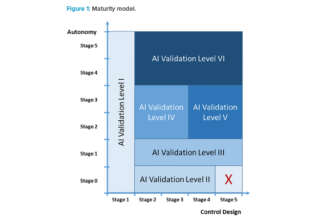
The JuJu cloud platform developed by Canonical integrates a wide variety of cloud services and servers on both public and private clouds using an innovative model-driven software approach.
That success has changed fundamentally the nature of software operations as organizations move to cloud-scale services, according to Mark Shuttleworth, founder of Canonical.
The impact on cloud operations is very much like the transition that happened with the big data community, Shuttleworth told technology writers and analysts during a teleconference earlier this week.
“That brought about a velocity of change in the data field — the same thing we believe is happening with the cloud software,” he said.
Juju is an interesting approach to managing installation and configuration in a visual or model-driven way, observed Al Hilwa, program director for software development research at IDC.
“In this sense, it brings many of the benefits of modeling which have typically been used in software development to the realm of software configuration and life cycle management,” he told LinuxInsider.
What It Does
Canonical developed JuJu as an open source service orchestration management tool. The platform facilitates fast deployment, integration and scaling of software using a wide choice of cloud services or servers.
JuJu is built around a service modeling tool that provides a quick way to model, configure, deploy and manage applications in the cloud with only a few commands. JuJu can deploy hundreds of preconfigured services, OpenStack, or an organization’s own code to any public or private cloud.
“The big challenge today is for corporations to operate the same way on the public clouds and the private infrastructure,” said Shuttleworth. “JuJu solves that problem.”
JuJu lets users integrate complex software to scale very quickly. It gives operators an effective way to share the cost of integration and operations across all of the consumers of the software, he said.
How It Works
JuJu employs preconfigured bundles and customized charms, which are available from the JuJu app store.
Charms are sets of scripts that simplify the deployment and management tasks of a service. They are regularly reviewed and updated.
Bundles are collections of charms that link applications together. That enables the deployment of whole chunks of infrastructure in one action.
“While the tool is competitive with other configuration management tools in some ways, it is really intended to operate at a higher-level of abstraction across multiple software domains,” said Hilwa.
Juju’s success will rely on two factors, according to Hilwa. One is its support for multiple environments. The second is the ecosystem support it receives to install and connect more and more products.
Costly Operations
“The cost of operating software today is shifting. Organizations have to learn to optimize operations cost rather than purchasing strategy effectively,” said Shuttleworth.
Ubuntu is the platform that most people use as they move into the cloud. That is true just as in the previous generation Linux started replacing Windows and Solaris, largely on RedHat and Suse, he said.
“In this generation, Ubuntu is very much the lead platform,” Shuttleworth claimed. “We see more than 50 percent of software consumers, like big banks, moving to Ubuntu today. They are moving to Ubuntu because of the operations in the cloud we are talking about today.”
Playing With Models
Software is becoming more complex because of microservices, noted Shuttleworth. Today’s software has massive components that run on hundreds of nodes instead of a few nodes. The pace of change has never been seen before.
“The way to handle all this is to change to a model-driven operation,” he said.
JuJu is the open source version of the model-driven software approach used for data operations of companies like Google, Amazon and Goldman Sachs, noted Shuttleworth. All of these large companies have their own homegrown versions.
“JuJu solves the problem of how do you operate on a public cloud and on a private infrastructure in exactly the same way,” said Shuttleworth. “The big picture story today is operations across two widely different domains.”
[Source:- technewsworld]








